Many importers and small business owners often get confused by the terms freight broker and freight forwarder. At first, they sound almost the same, since both are part of the shipping process. In reality, their jobs are very different. Understanding the difference helps you make better decisions and avoid expensive mistakes.
A freight broker mainly links shippers with carriers, acting as a middleman. A freight forwarder, on the other hand, manages the entire shipment, including customs, paperwork, and sometimes storage.
Let’s walk through what separates them and when you should use each one.
What Does a Freight Broker Do?
Freight brokers work as connectors.
They don’t own trucks, ships, or warehouses. Their role is to match businesses that need shipping with carriers that have available space.
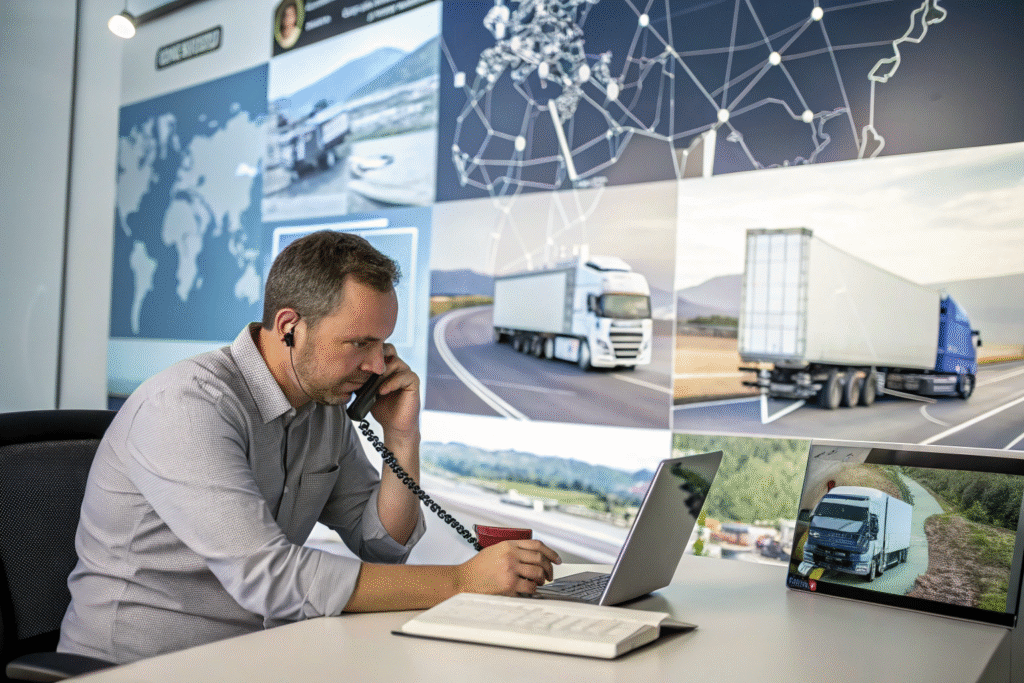
How Do Freight Brokers Help Shippers?
They find carriers, negotiate rates, and confirm schedules. By doing this, they save businesses time and effort. The Federal Motor Carrier Safety Administration in the U.S. sets the rules that freight brokers must follow.
What Are the Limits of Freight Brokers?
Brokers don’t handle customs or take full responsibility if cargo is lost. Their job ends once they connect you with a carrier. This is why many companies importing from overseas prefer forwarders. Investopedia gives a clear breakdown of a broker’s role.
What Does a Freight Forwarder Do?
Freight forwarders go beyond just finding transport.
They manage the entire journey—from picking up goods at the factory to clearing customs and delivering to the buyer’s door.
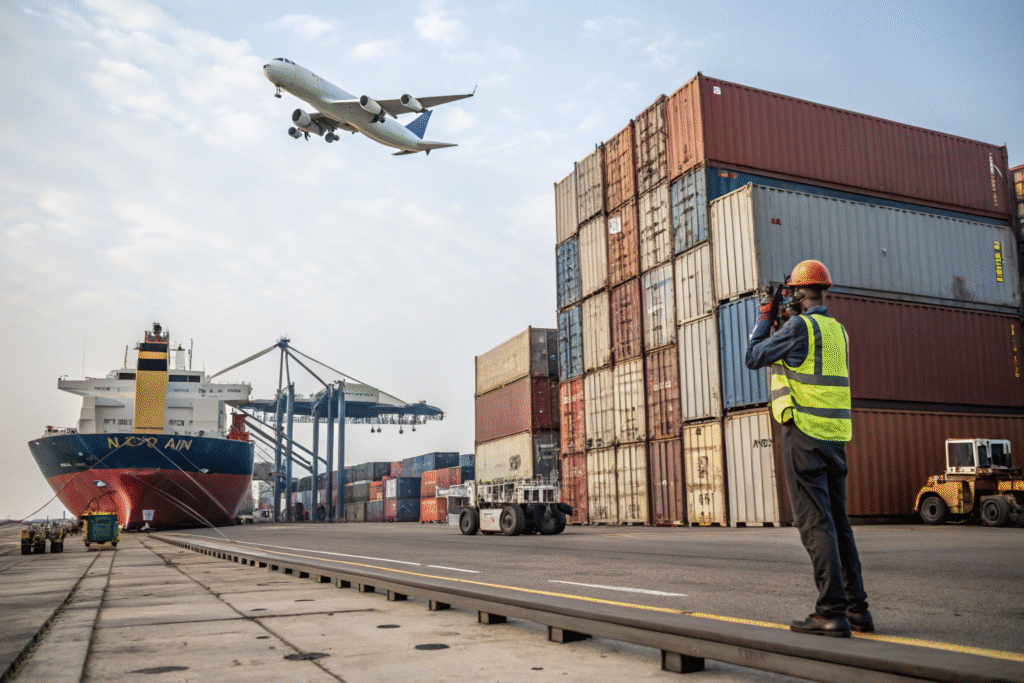
What Services Do Freight Forwarders Offer?
Forwarders handle export paperwork, book space on planes or ships, arrange customs clearance, and often provide warehousing. They work more like logistics partners than simple middlemen. The International Chamber of Commerce explains their role within global trade terms.
Why Do Importers Prefer Freight Forwarders?
For international shipping, forwarders give peace of mind. They know customs rules, manage duties, and often provide door-to-door delivery. Companies like Flexport show how forwarders use digital tools to make global logistics easier.
How Do They Compare in Responsibilities?
Brokers and forwarders overlap in some ways, but their core roles are different.
Brokers arrange transport, while forwarders handle the whole shipping process.
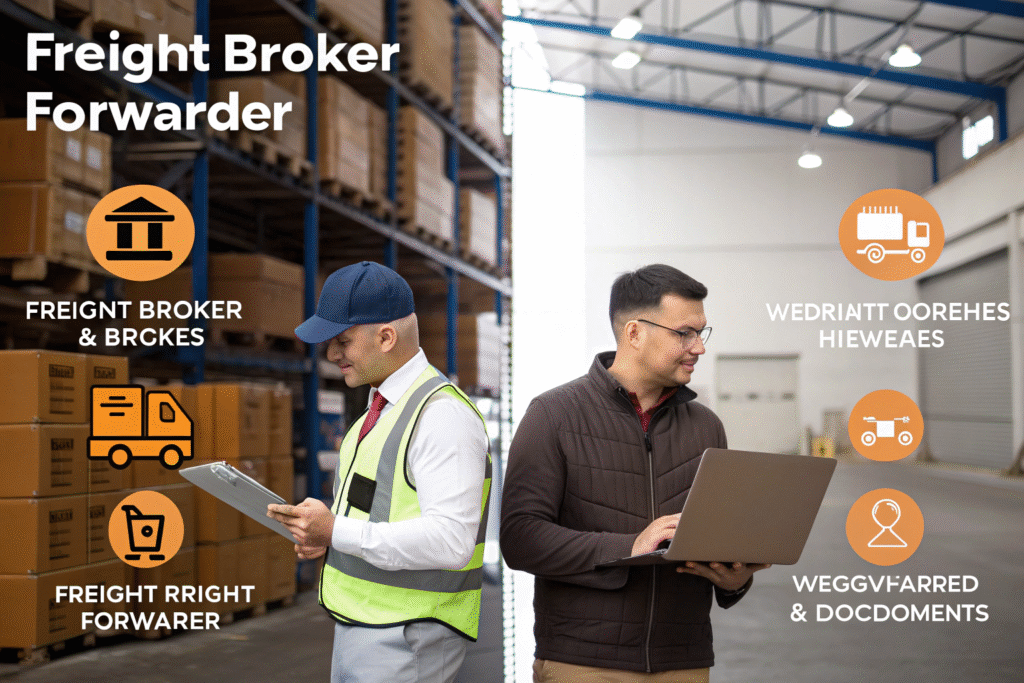
Key Differences in Services
| Feature | Freight Broker | Freight Forwarder |
|---|---|---|
| Owns transport assets | No | Rarely |
| Books carriers | Yes | Yes |
| Customs clearance | No | Yes |
| Warehousing | No | Sometimes |
| Full door-to-door | No | Yes |
Shipping and Freight Resource offers more details on these differences.
Which One Should You Choose?
For domestic shipments or quick truck bookings, a broker may be enough. But for international imports from China to the U.S. or Europe, a freight forwarder is usually the better fit. They manage customs, duties, and final delivery. Trade.gov also highlights why forwarders matter in cross-border trade.
Why Does the Difference Matter for Small Businesses?
For small and medium companies, the choice of partner directly affects costs and timelines.
Forwarders usually bring more stability and less risk, especially when goods cross borders.
How Can a Wrong Choice Hurt Business?
If a small business uses a broker for overseas shipping, they may face customs delays or surprise charges. This hurts cash flow and customer trust. The U.S. Small Business Administration suggests choosing partners who can provide complete support for global trade.
Why Do Many Small Importers Trust Forwarders?
Forwarders take care of the details small companies don’t have time for. From customs to warehousing, they make shipping smoother. Many importers find that relying on a single forwarder saves both money and time. Freightos shares examples of small businesses gaining efficiency with forwarders.
Conclusion
Freight brokers and freight forwarders each have important roles in logistics, but they are not the same. Brokers link shippers and carriers, while forwarders oversee the entire shipping process, including customs and delivery.
For importers bringing goods from China or other overseas markets, forwarders are usually the smarter choice. They reduce stress, handle the paperwork, and keep goods moving. By knowing the difference, small businesses can choose the right partner, save money, and run smoother supply chains.
